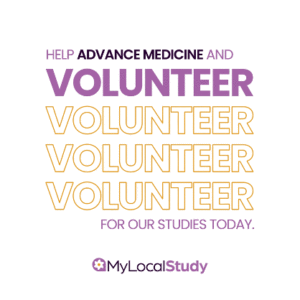Clinical studies come in all shapes and sizes! From different conditions to varying phases, each study presents its own unique set of variables. Find out more on our blog!
The Purpose Clinical Studies Serve
Clinical studies are research studies conducted with human volunteers to investigate the effectiveness and safety of medical treatments, procedures, and drugs. Through rigorous testing and trials, clinical studies determine the safety and efficacy of new drugs, treatments, and medical technologies. The data obtained from clinical studies can deliver invaluable insights into the treatments and therapies administered to patients today. Fundamentally, clinical studies provide information to physicians and regulators alike on the best practices, medications, and therapies to improve patient health outcomes. Ultimately, clinical studies are at the core of modern healthcare.

Understanding the Phases of Clinical Trials
Clinical trials are a cornerstone of medical innovation, and understanding the phases is crucial to comprehending how treatment options come to the forefront. Clinical trials are conducted in 4 different phases. Each phase in a trial serves a different purpose and will have different requirements for study volunteers.
- Phase 1 – In the early stages of a clinical trial, a small group of volunteers is enlisted to test the safety and initial efficacy of a new drug or medical device. This is a vital step in the drug development process, as it gives researchers a chance to identify any potential side effects or concerns before moving on to a larger group of participants. These initial studies are carefully monitored and tightly controlled, allowing scientists to gather critical data that will inform the next steps in the process.
- Phase 2 – This phase involves administering the drug to a larger sample population, typically several hundred individuals, to assess its safety, efficacy, and optimal dosage. The trial designers also monitor for adverse effects and the drug’s interactions with other medications. The patients are monitored closely throughout the trial to gauge their response to the therapy.
- Phase 3 – In this phase, a treatment or therapy candidate is evaluated by thousands of patients across multiple clinical centers around the world. The objective? Ensuring that the promising results shown in earlier phases can withstand the statistical rigor of a larger and more varied pool of subjects. Volunteers may participate in phase 3 trials, which can last 1-4 years. Approximately 25-30% of drugs will move on to the next phase.
- Phase 4 – This phase is the culmination of years of research and is the last hurdle before the medication can be approved for public use. During phase 4, the medication is monitored for any long-term side effects and its effectiveness is assessed over an extended period. This phase is often referred to as the “real-world” phase, as it is when the medication is finally tested on a larger and more diverse patient population. The data collected during phase 4 is crucial in determining if the medication can continue to be prescribed and used safely.

With continued research and development, we can not only improve current treatments but also potentially find cures for previously incurable diseases. The benefits of these trials extend far beyond the clinic or lab – they have the potential to change lives and entire communities. While it may take time, money, and effort, investing in clinical trials is an investment in the future of public health.
If you’re ready to get involved in a clinical study, CLICK HERE, and enter your zip code to see what studies are enrolling near you! A good deed today can make a world of difference tomorrow!
Resources:
https://www.nih.gov/health-information/nih-clinical-research-trials-you/basics

